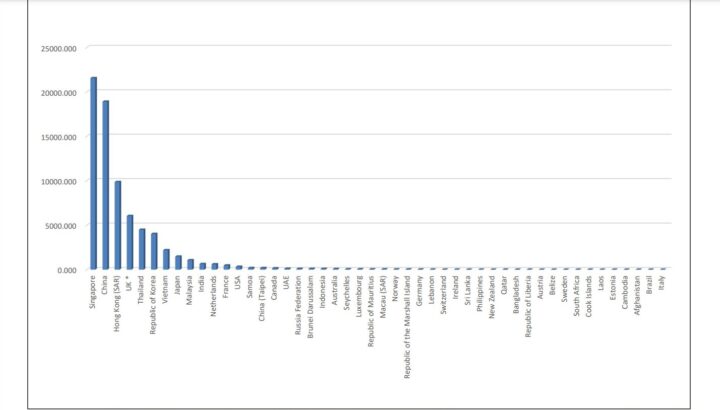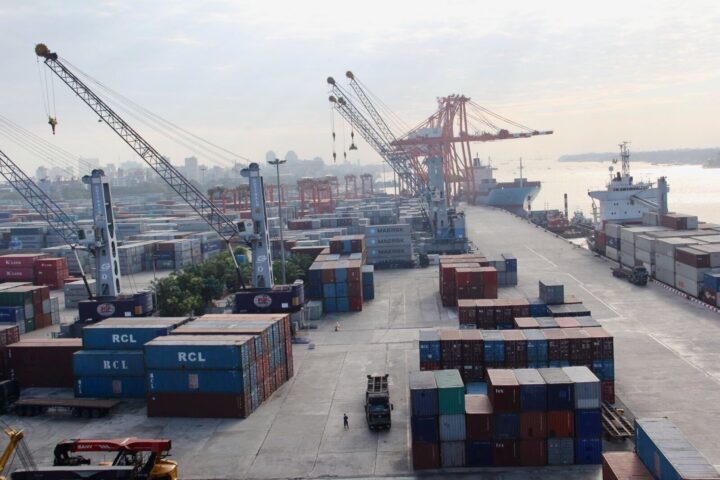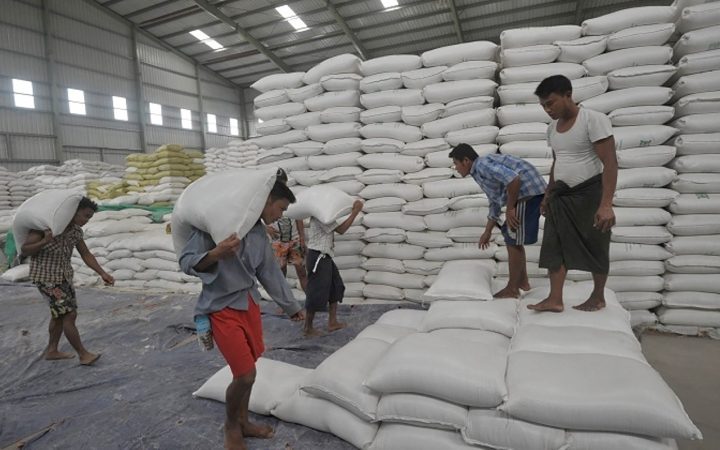E-commerce, BarLoLo.com allowed individuals and business owners in Myanmar to buy and sell items in an easy and efficient manner to extend their reach and promote inclusive growth
4 Dec 2018
Poor road infrastructure and rampant illicit trade have long prevented small businesses in Myanmar from reaching out to the wider consumer market. But an e-commerce start-up is determined to break these barriers and promote economic inclusion by providing an online platform for those sellers and merchants. In other words, it is to make e-commerce work for the many, not the few.
BarLoLo.com (BarLoLo) is a Yangon-headquartered online marketplace which allows individuals and business owners in Myanmar to buy and sell items in an easy and efficient manner. In particular, it focuses on creating a platform which works for small merchants in local communities and those living in second and third tier cities. The company’s mission is about connecting merchants with buyers across the country by technology, empowering local merchants to extend their reach and promoting inclusive growth. This vision strikes a chord with the government’s latest priorities, as the commerce ministry recently committed to developing e-commerce as a means to boost trade and create jobs.
In downtown Yangon, The Myanmar Times talked to U Min Min, BarLoLo’s chief operating officer, who was confident about Myanmar’s market demand.
“According to Nielsen, Myanmar’s retail industry is currently valued at between US$10-12 billion, roughly 15 percent of the country’s GDP. There are approximately 250,000 retail outlets in the country, with grocery, convenience, fabric, pharmacy, and fashion accounting for 45pc of total retail stores. Retail market remains highly fragmented with modern retail contributing approximately 10pc, and the leading modern retail group contributing less than 5pc of the total retail market,” he said.
The businessman also cited a 2016 Deloitte study which found that, while current preference to purchase online take up less than 1pc of consumers, that is rapidly changing as e-commerce platforms extend its reach and as users engage “in social-commerce among their friends”.
‘Our team wants to level the playing field by using technology to offer sellers a platform that easily showcases and sells their products nationwide, breaking the barrier in doing business.’ - U Min Min, BarLoLo.com
For the many
U Min Min said the majority of the merchants in this country belong to middle-class non-landowner. For these people, high rent, logistics barriers and difficulties in collecting payment present key barriers to doing business.
“The merchants we reach out to are mostly low-middle income earners and are non-landowners. For them to even start a business or a shop, they are inhibited by excessive advance rent payment, poor inventory management skills, lack of quality delivery vendors and poor payment collection options,” Ma Yusett, BarLoLo’s head of operations.
By harnessing digital technology, the company aims to provide a solution for these marginalised players and ensure that no one is left behind in the country’s broader economic growth. Its buyers include direct consumers, small retailers, and even wholesalers, especially in outskirts of urban centres as well as second or third tier cities.
“Our team wants to level the playing field by using technology to offer sellers a platform that easily showcases and sells their products nationwide, breaking the barrier in doing business. BarLoLo.com hopes to enable merchants across the country by offering an online platform to showcase their products to buyers nationwide and also facilitates delivery and payment solutions through trusted vendors,” U Min Min continued. This can have an enormous impact on the local small and medium-sized enterprises (SMEs), which form the backbone of Myanmar’s economy.
Education - particularly digital literacy - is a core part of the start-up.
“In the past year, we have grown our merchant network significantly since the initial launch. Our team reaches out to local merchants to educate them on general usage of Internet and assist them in showcasing their products on our platform.”
The COO stressed that his firm is committed to promoting entrepreneurship and job creation by leading the local trend in consumer-to-consumer digital sales, allowing “anyone to ‘open their own shop’”. The firm invests in educating digital users on mobile internet usage, including account registration, product photography, inventory management, chat communication and online payment.
To start off with, BarLoLo’s priorities are health and beauty products and fashion and mobile accessories, but the platform recently also received a growing interest in books.
Digitalisation
Myanmar is on track to see accelerated digitalisation in the next five years, U Min Min insisted.
“Smartphone penetration is already reaching 66pc, higher than the APAC average of 53pc. Furthermore, 4G speed is reaching well over 10 Mbps. Local banks have begun focusing their efforts on mobile banking.
“We are strong believers of the potential ahead. A proper level of government support and avoiding over-regulation will be key to sector’s development. As we have seen in the case of mobile payment offerings, regulatory limitations ultimately affect accessibility and opportunity for small merchants.”
Apart from logistics, what is the biggest worry for small players in this e-commerce sector?
“Our biggest concern would be the potential increased influx of untaxed illegally imported products. Well-established Chinese e-commerce leaders have aggressively set up presence in neighbouring ASEAN countries to further improve sales for Chinese manufacturers and distributors. We believe consumers benefit from improved product variety and selection through cross-border trade, but untaxed illegal imports harm the livelihood of local merchants,” U Min Min commented. Illegal traders are able to sell goods at much cheaper prices than locally manufactured or legally imported products. This trend also threatens the development of the local
manufacturing industry.
Survival of SMEs
As cross-border trade grows and competition in the e-commerce sector in ASEAN heats up, opportunities abound for cross-border bulk-buyers and wholesalers. The challenge for small sellers would be to compete in this increasingly competitive environment and not be squeezed out by larger players.
As an online marketplace solely focused on Myanmar, BarLoLo’s strategy is to position itself as the leading platform reaching out to small businesses and distributors who offer quality products for the masses. “We believe this strategy positions us well to benefit from the emergence of the middle-class in the country,” U Min Min observed.
In Myanmar, big names have established their presence recently, including Alibaba’s subsidiary Shop.com.mm. Shop.com.mm generated sales of over US$90,000 (K143 million) in the first hour of its first-ever Singles Day online sale on November 11. The occasion, also known as 11.11, is the biggest shopping event in China. Earlier this year, Japanese delivery giant Yamato has also set up a unit in Myanmar to tap into the logistics and e-commerce boom.
A recent report from the United Nations Conference on Trade and Development (UNCTAD) titled “Rapid eTrade Readiness Assessment of Myanmar” argued that improving the legislative and regulatory framework is needed to properly govern the industry. This means taking more active steps on consumer protection, privacy, security of transactions, cybercrimes and other problems that have been part of the digital ecosystem. It also predicted that e-commerce can benefit, in the long run, the retail, healthcare and tourism sectors.
(The Myanmar Times: https://www.mmtimes.com/news/empowering-small-businesses-e-commerce-barlolocom.html )

















